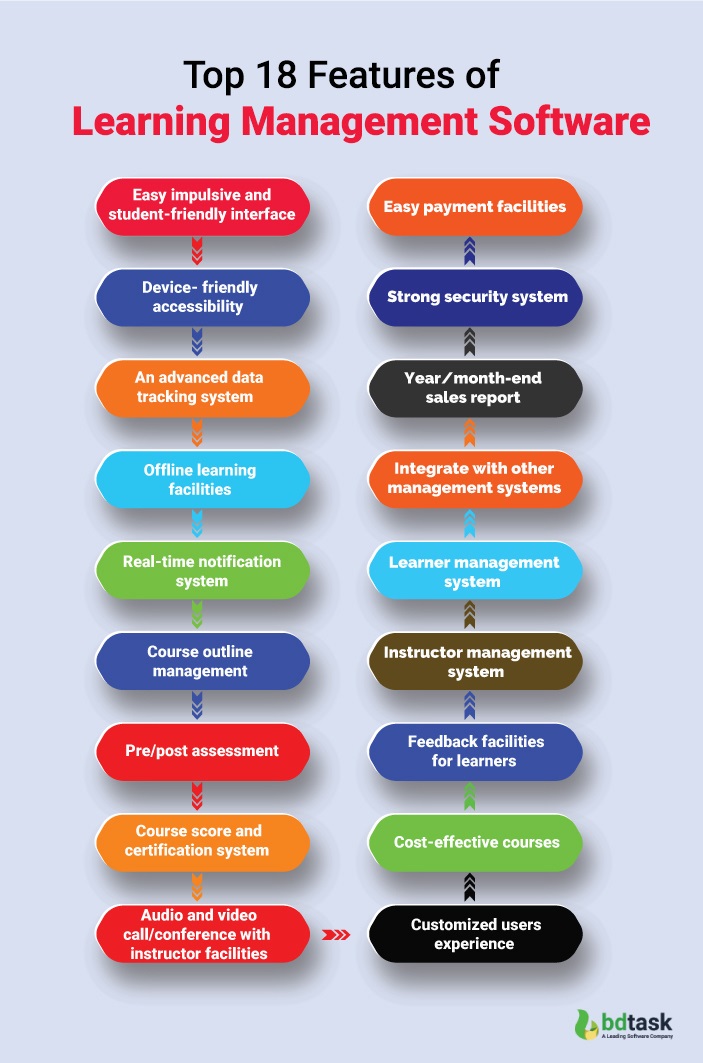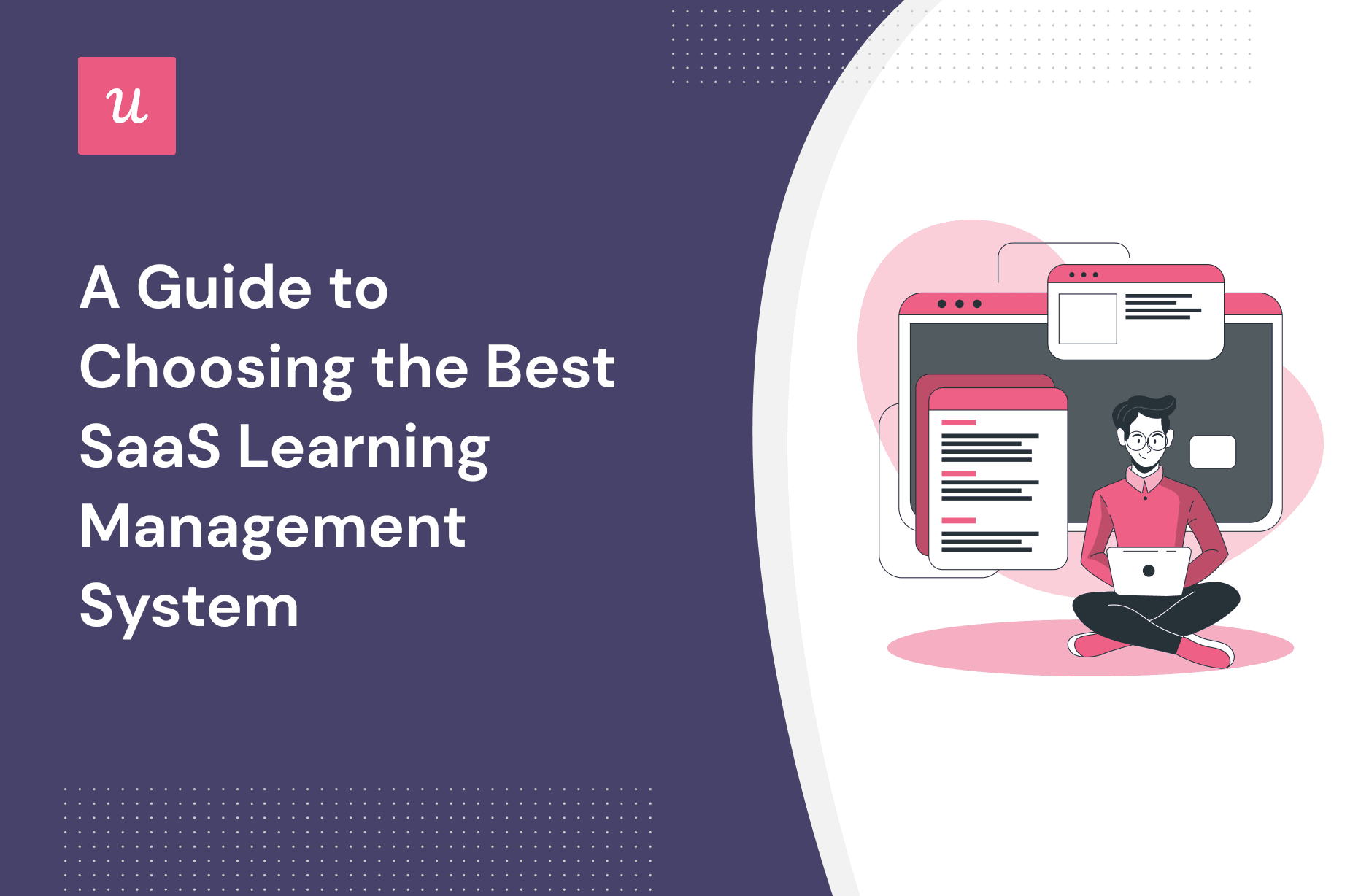Canvas Singapore: The Future of Online Learning and Education
Canvas Singapore: The Future of Online Learning and Education
Blog Article
Choosing the Finest Learning Administration System for Your Company
Picking the ideal Learning Management System (LMS) for your company is a diverse choice that needs mindful consideration of various components. From specifying exact understanding objectives that resonate with your tactical vision to evaluating user experience, each element plays a critical duty in the overall performance of the system. Additionally, recognizing assimilation capabilities and ensuring scalability for future demands can not be ignored. As organizations aim for efficiency and development, the choice of an LMS becomes progressively considerable. What are the critical considerations that can affect your decision-making process?
Specify Your Discovering Purposes
Specifying clear knowing goals is essential for the successful implementation of a Learning Monitoring System (LMS) These goals work as a roadmap, leading the growth of material, assessments, and general training methods within the LMS. By establishing details, measurable, possible, pertinent, and time-bound (CLEVER) objectives, organizations can make sure that the knowing experiences are straightened with their tactical purposes and learner demands.
Effective learning goals need to envelop what students are anticipated to know or be able to do upon conclusion of a course or training program. This quality not just aids in web content development yet also facilitates the evaluation of student progress and the overall effectiveness of the LMS. Learning Management System Singapore. Moreover, distinct objectives enable stakeholders to evaluate whether the selected LMS capabilities and attributes line up with their instructional objectives.
Assess Individual Experience
Once discovering purposes have been established, assessing customer experience comes to be an essential following action in choosing an ideal Knowing Management System (LMS) Customer experience incorporates the overall satisfaction and convenience with which learners engage with the system. A properly designed LMS should facilitate intuitive navigating, ensuring that customers can find programs, materials, and support effortlessly.
To assess individual experience, think about carrying out use testing with a representative example of end-users. This can supply beneficial insights into how learners involve with the platform. Secret aspects to evaluate include the LMS's interface style, accessibility functions, mobile compatibility, and the clarity of directions given. Individual feedback is essential; accumulating surveys or performing interviews can reveal usual pain points and locations for improvement.
In addition, review the accessibility of assistance resources, such as tutorials and help centers, which can boost the customer experience. The responsiveness of consumer support is also critical; prompt help can dramatically mitigate irritations that customers may encounter. Inevitably, picking an LMS that prioritizes individual experience not only improves the learning procedure but likewise fosters higher involvement and satisfaction among students.

Evaluate Integration Capabilities
Recognizing the importance of smooth functionality, evaluating combination abilities is vital when selecting a Discovering Administration System (LMS) An efficient LMS needs to help with interoperability with existing systems, such as Personnel Management Solution (HRMS), Customer Relationship Management (CRM) systems, and various other educational devices. This assimilation boosts data circulation, decreases administrative concerns, and guarantees a natural learning atmosphere.
When assessing an LMS, take into consideration the kinds of integrations offered. Search For Application Programs User Interfaces (APIs), Single Sign-On (SSO) abilities, and pre-built connectors that simplify assimilation processes. Additionally, validate the LMS's ability to integrate with third-party devices, such as material collections or evaluation systems, which Click Here can considerably enhance the discovering experience.

Take Into Consideration Scalability and Adaptability
As companies evolve, the capability of an Understanding Administration System (LMS) to range and adapt becomes progressively important. A scalable LMS can accommodate growth in user numbers, program offerings, and material without compromising performance or individual experience. As companies broaden, whether via enhanced employees, brand-new places, or diversified training needs, the LMS should flawlessly expand alongside these modifications.
Adaptability is equally important; an efficient LMS needs to support different finding out methods, such as online, blended, and mobile understanding. This adaptability enables organizations to react promptly to emerging patterns in training and advancement, ensuring that they can use engaging and relevant learning experiences - Canvas Singapore. In addition, the system needs to give adjustable features, enabling organizations to tailor the LMS to their specific needs and branding
Furthermore, an adaptable LMS needs to integrate conveniently with existing platforms and tools, helping with a natural understanding ecosystem. Thus, when picking an LMS, it is vital to examine not only its existing abilities however likewise its prospective to grow and adjust abreast with the company's calculated objectives and progressing discovering demands. This foresight can substantially enhance the long-term viability of the picked LMS.
Testimonial Prices and Budgeting
When assessing a Learning Administration System (LMS), examining costs and budgeting is necessary to make sure that the investment aligns with the organization's critical purposes and monetary capacities. Organizations needs to start by recognizing the total price of ownership, which consists of licensing charges, application prices, maintenance, and any additional expenses such as training and technological support.
It is important to compare different LMS options, as pricing designs can differ substantially among vendors. Some systems may supply a subscription-based model, while others may bill a single fee. Organizations needs to also take into consideration the scalability of the LMS; as they expand, the cost framework might alter, affecting lasting budgeting.

Final Thought
Picking a proper Learning Management System (LMS) is important for achieving business understanding objectives. Ultimately, the appropriate LMS offers as a crucial tool in fostering a reliable discovering atmosphere and driving organizational success (Canvas Singapore).
Picking the optimum Learning Administration System (LMS) for your company is a complex decision that calls for careful consideration of numerous components.Specifying clear discovering purposes is necessary for the effective application of a Discovering Administration System (LMS)Once learning purposes have been developed, reviewing user experience ends up being a crucial next step in picking a proper Discovering Management System (LMS)As Click Here companies progress, the capacity of a Knowing Management System (LMS) to scale and adapt More about the author becomes increasingly essential.Choosing an ideal Knowing Monitoring System (LMS) is essential for achieving business learning goals.
Report this page